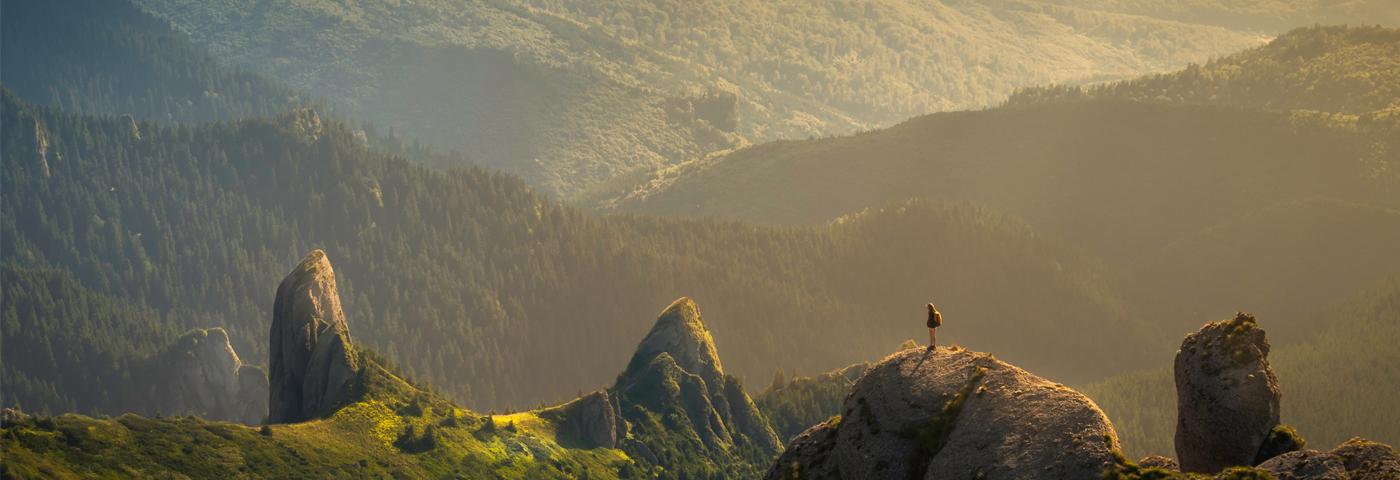At the beginning of this month, the Campaign to Protect Rural England (CPRE) published a series of detailed maps revealing that 36% of England’s population live too far away from national parks and Areas of Outstanding Natural Beauty to easily access them. As an article in the Guardian observed: “the country’s poorest people are being denied access to England’s most beautiful countryside and missing out on the mental and physical health benefits that can result.”
This article appeared in the environment section rather than the travel section of the paper. But it hits on two related themes that the travel industry should focus a great deal more attention on: the importance of connecting people to nature; and providing the most disadvantaged members of society with the opportunity to benefit from leisure time (especially in nature).
Connecting people to nature
Of course, much of the travel industry works to connect people to nature, whether taking us to beaches, mountains or forests. But connecting in the sense of providing transport links is not the same as enabling a deeper reconnection to nature and the benefits that this brings.
Just 20 minutes in nature improves concentration and reduces the need for ADHD and ADD medications in children. A 30-minute visit to a park can improve heart health, circulation and lower cholesterol, blood glucose, and blood pressure. Frequent exposure to nature reduces anxiety and depression, while promoting a sense of wellbeing and fulfillment. As another article in the Guardian last year reported, doctors in the Shetland Islands off Scotland are prescribing birdwatching and nature walks to patients. In other words, they are offering tourism products to make people better.
In Austria, in the Hohe Tauern National Park near Salzburg, they have developed an initiative to promote holidays in the National Park focussing on the impact on our health. The Hohe Tauern Health brand promotes the benefits of holidays spent in the unspoilt natural surroundings of the park. Participating hotels must provide allergen-free environments and healthily produced food. Essentially their hotels are removing chemicals, using organic food etc – all the things you might expect from a Responsible or Sustainable Tourism certification. But it is promoted for the impact it has on the guest – not ‘stay here because we are responsible’, but ‘stay here because your health benefits’.
Opportunities for the disadvantaged
We can all benefit from a greater connection to nature. However, as the CPRE maps make clear, those who could perhaps benefit most often find it hardest to do so. The talk at WTM London in 2018 that affected me most was given by John Kinnear from the Family Holiday Association. As John explained, the FHA is the UK’s “only national charity dedicated to helping struggling families get a break”. They work with partners in tourism who donate accommodation, transport or attraction tickets to provide free trips and experiences for families and young people for whom holidays are beyond reach. The positive impacts of these trips are remarkable. According to FHA research, after time spent away on a break, 95% felt better about the future, 93% felt less stress and worry, 93% felt able to cope better, and 92% got on better as a family.
There are significant opportunities for tourism companies to deliver such positive benefits through supporting organisations like the FHA. For example, UK-based responsibletravel.com runs a Trip for A Trip programme, where for every holiday a customer books on its website, they can choose to support a daytrip for a disadvantaged child (working with FHA in the UK, and other partners around the world to deliver these trips). However, other than Elevate Destinations, who won a World Responsible Tourism Award in 2016 for their Buy a Trip, Give a Trip scheme, I know of no other tour company offering such an initiative. If you are doing something similar, please let me know.
In the coming years, climate change will define more and more of our conversations and actions. Trying to make expensive holidays in far flung lands less polluting will become an ever-greater challenge. If it is seen as our industry’s priority then we will increasingly be seen as providing a luxury the planet can no longer afford. Objections to our business model will only grow.
We need to look closer to home. Reconnecting all of us to nature – nature that is near where we live – should be a far more urgent priority. It might end up being our reason to exist.



At Parks and Wildlife Finland, the government organization that governs all the 40 national parks in Finland, we have for a long time studied the health and economic benefits of nature and national parks. Y
Tom Selänniemi, Director, The Finnish Nature Centre Haltia